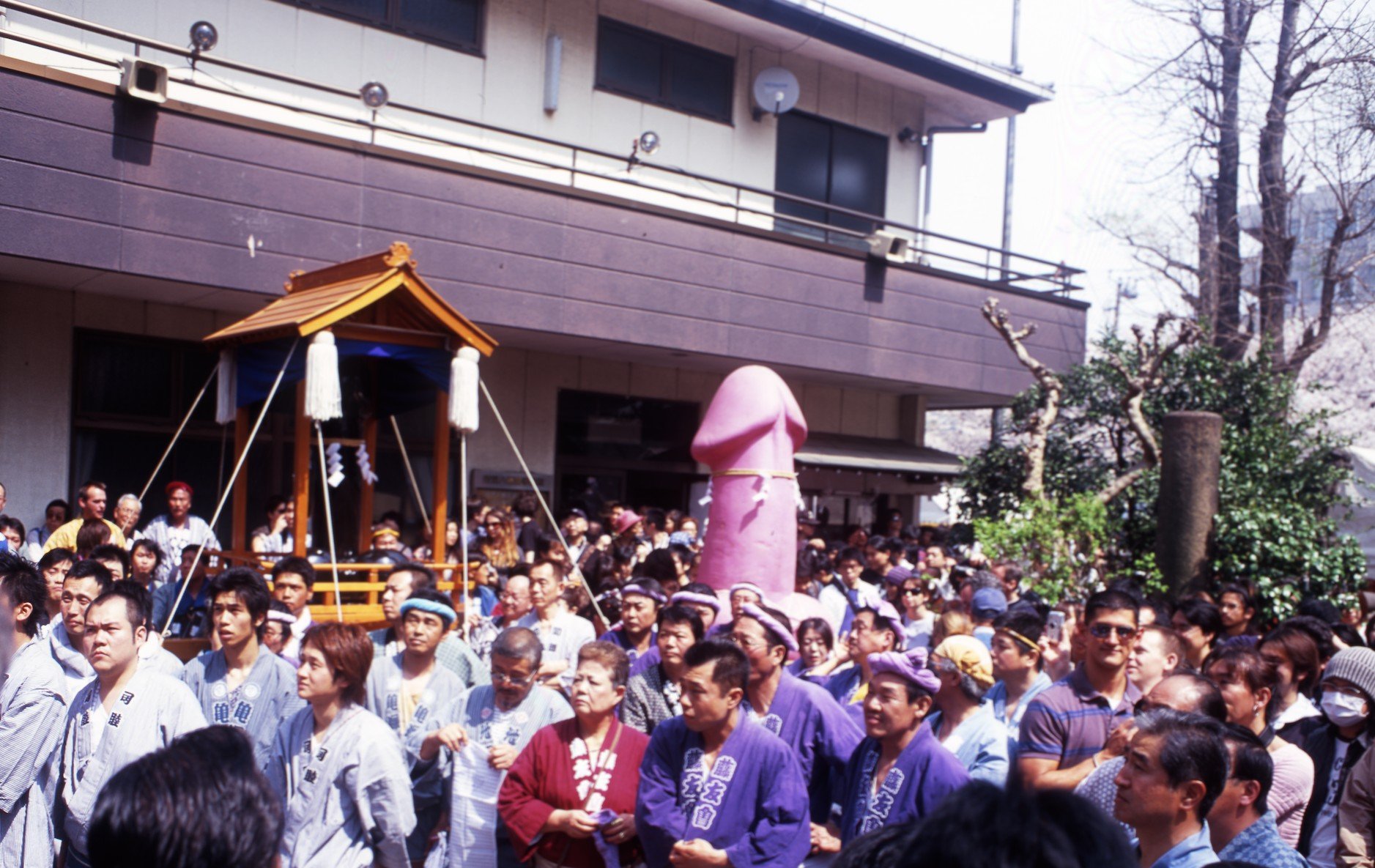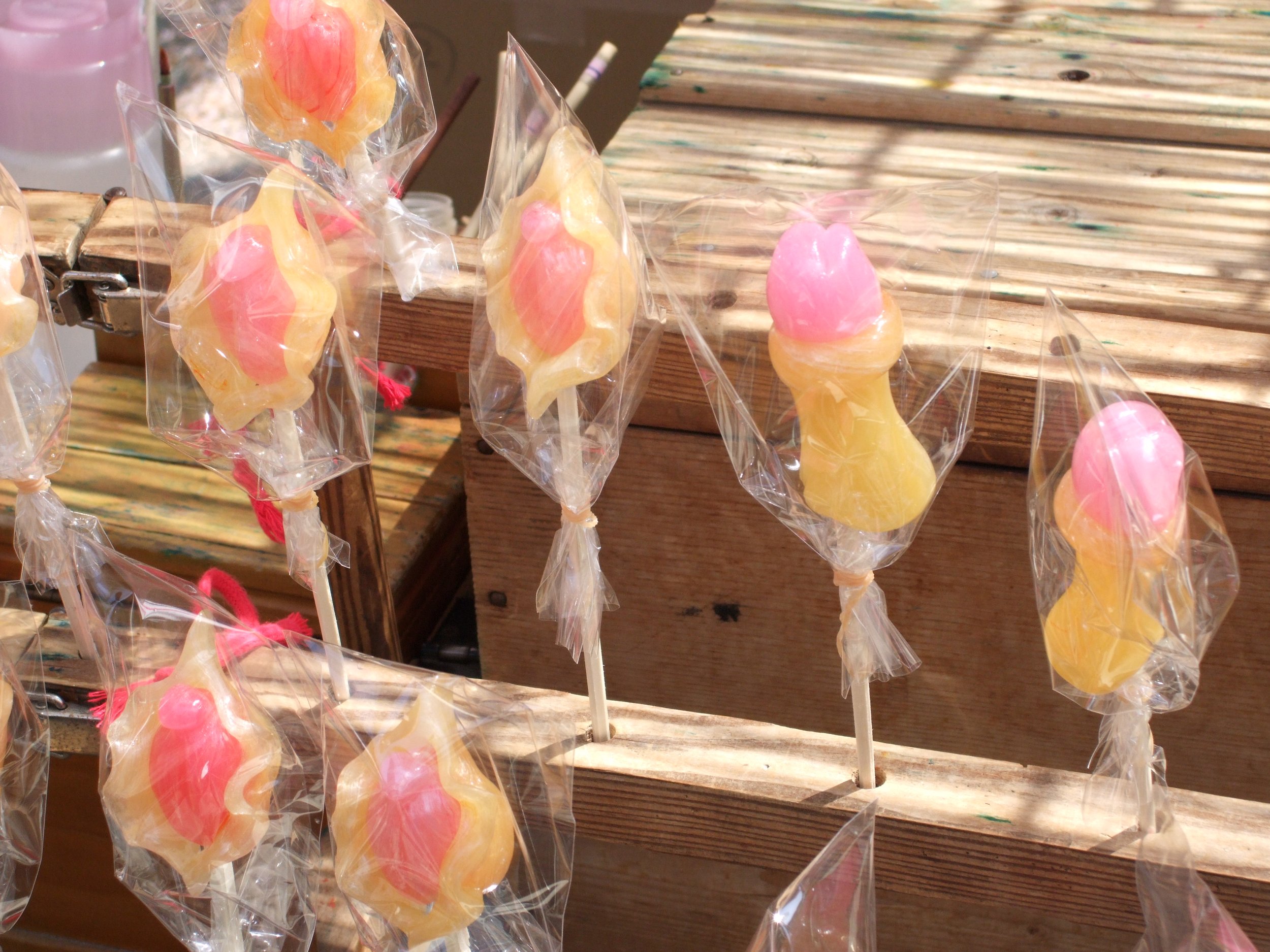Kanamara Matsuri: Dicks on Parade at Japan's Phallic Festival
In the picturesque town of Kawasaki, just south of Tokyo, Japan, a vibrant and unconventional festival takes place annually, attracting locals and tourists alike. Known as Kanamara Matsuri, or the Festival of the Steel Phallus, this colorful event celebrates fertility, sexual health, and diversity in a manner that may seem unusual to outsiders but holds deep cultural significance within Japanese society.
Rooted in centuries-old traditions, Kanamara Matsuri centers around the veneration of phalluses, which are believed to bring good luck, fertility, and protection against sexually transmitted diseases. The festival typically takes place on the first Sunday of April, drawing crowds eager to participate in the festivities and witness the unique customs on display.
Origins of Kanamara Matsuri
The origins of Kanamara Matsuri date back to the Edo period (1603-1868) when sex workers and worshippers visited Kawasaki's Kanayama Shrine to pray for protection against syphilis, a rampant disease at the time. Legend has it that a sharp-toothed demon inhabited a woman's vagina, castrating her husbands on their wedding nights. To rid the village of this curse, a blacksmith forged an iron phallus, which broke the demon's teeth and saved the village. Since then, the phallus has been revered as a symbol of protection and fertility.
Kanamara Matsuri festival featuring a mikshi (phallus) on parade, 2007, Wikicommons.
Today, Kanamara Matsuri embraces this historical legacy with a series of lively and sometimes risqué events. The highlight of the festival is the procession of mikoshi, portable Shinto shrines carried through the streets, each adorned with large phallic symbols. Participants, both locals and visitors, join in the procession, chanting prayers and celebrating the spirit of fertility and renewal.
Penis and vulva shaped lollipop are a common treat enjoyed at Kanamara Matsuri each year.
Another popular attraction at Kanamara Matsuri is the phallus-shaped candy known as "kawakoyashi," which comes in various sizes and flavors. Visitors can purchase these colorful treats as souvenirs or enjoy them as a whimsical snack while exploring the festival grounds. Additionally, vendors sell a variety of phallus-themed merchandise, from keychains to decorative ornaments, providing attendees with a playful way to commemorate their experience.
Despite its lighthearted atmosphere, Kanamara Matsuri also serves as a platform for raising awareness about sexual health and LGBTQ+ issues. In recent years, the festival has partnered with organizations advocating for HIV/AIDS prevention and supporting marginalized communities. Through educational workshops and outreach programs, Kanamara Matsuri aims to promote acceptance, understanding, and inclusivity.
Furthermore, Kanamara Matsuri celebrates the diversity of human sexuality and gender identity, challenging societal norms and fostering a sense of community among participants. The festival welcomes people of all backgrounds, regardless of sexual orientation or gender expression, fostering an environment of acceptance and celebration.
While Kanamara Matsuri may seem unconventional to outsiders, it embodies the Japanese spirit of embracing tradition while embracing modernity. By blending ancient customs with contemporary values, the festival remains relevant in today's society, serving as a symbol of resilience, creativity, and cultural expression. By participating in Kanamara Matsuri, attendees not only honor ancient traditions but also contribute to the ongoing dialogue surrounding sexual health and identity in a global context.


